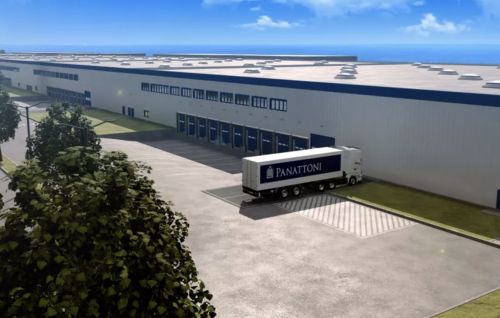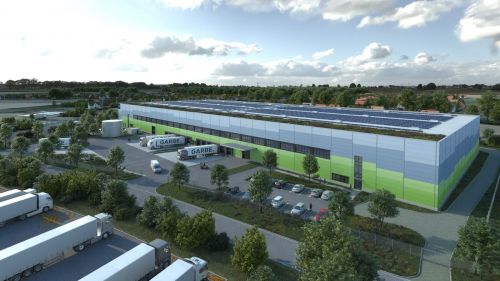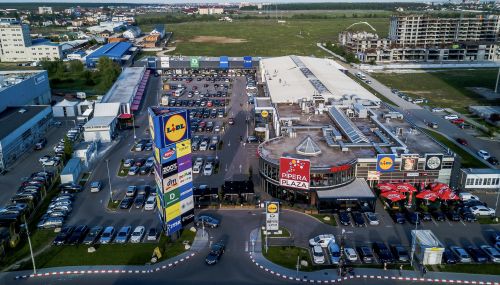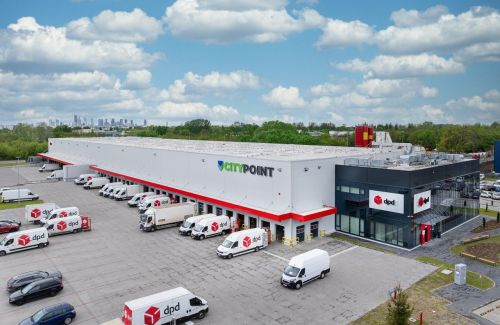A swarm in my soup
Endpiece
‘Bubbling’, ‘fermenting’, ‘revolution’, ‘the masses’ and ‘the dawn of a new age’. We usually use these terms in times of major upheavals and breakthroughs – when everything that we once knew is coming to an end, while the new world, though not yet fully defined, makes its entrance onto the stage of history.
Since around the middle of the last century, scientists have believed that amino acids – the so-called building blocks of life – could have originated in what is known as the primordial soup. In that chemical environment all that was needed was a sufficient amount of energy to make them, thus kick-starting the development of life on Earth. What the conditions were really like then is difficult to say – we are talking around about 4 bln years ago. However, experiments have been done that go some way towards confirming this hypothesis. And for the next millions and billions of years life gradually emerged from the water, almost becoming extinct several times, until eventually brains evolved – and this sped up the course of events a little. Homo sapiens first walked the Earth about a quarter of a million years ago. And walking around was what it tended to, because it took quite some time before one of them realised that they would benefit from a more settled form of life. This seems to have occurred about 10,000 years ago, when some bright caveman stumbled upon a way of cultivating the soil. After this, humans then needed more substantial shelter than just their regular tents and shacks, so the first house was built and so the history of real estate began. Archaeologists claim that the first houses had just one chamber, in an early example of open-plan. Such a layout, even though it is considered somewhat less than fantastic by some office workers, does provide the ideal conditions for socialising. Which is also encouraged by something else – ethanol, which first tickled the palates and addled the brains of our ancestors in the form of beer and wine in the Neolithic era. This is how the Neolithic revolution started – an improvement in farming tools, the domestication of animals, the development of trade, followed by a demographic explosion, the building of megaliths, the first cities and states and then armed conflict. This was very much the pattern for human society for the next ten millennia, but in the 18th century it passed into history itself with the onset of the industrial revolution, bringing with it mass production and all its consequences.
According to scientists we have since moved into the third stage: the scientific and technical revolution, as characterised by rapid and thorough changes in technology as well as an almost exponential increase in knowledge, in the form of stored computer data. If we added up all the information that has been stored since the beginning of human history until 2010 (from stone tablets to supercomputers), the total would come to just under 0.2 zeta bytes. By 2019 the amount of data accumulated by humanity is set to exceed 30 zeta bytes. Not only has this given birth to a new real estate segment – data centres – but it has also contributed to significant changes in our habits and how companies function and to the creation of whole communities.
We now have the opportunity to see how this phenomenon rolls out in real time. What were previously dull administrative blocks have now become exciting arenas for the exchange of knowledge, cooperation, development and innovation – all of which is available when you want it and for how long you want it. The office has thus become a factory of ideas, a warehouse and shopping centre for knowledge, as well as a hotel with a wide range of additional attractions for innovators. All in one. As many as 1.2 mln people across the world are now working in such serviced offices, as they form a natural environment for start-up communities. Each adds its own building block to the latest revolution, by encouraging both independent work or tasks done by teams. Some see the beginnings of distributed (or ’swarm’) intelligence in all this. It was how Linux and Firefox were created, among other symbols of the age. And this process has been gaining momentum. Hubs, where the exchange of knowledge and experience boils and bubbles just like the primordial soup, are opening everywhere. And who knows what will come out of them if the right amount of energy is supplied... ?





















































